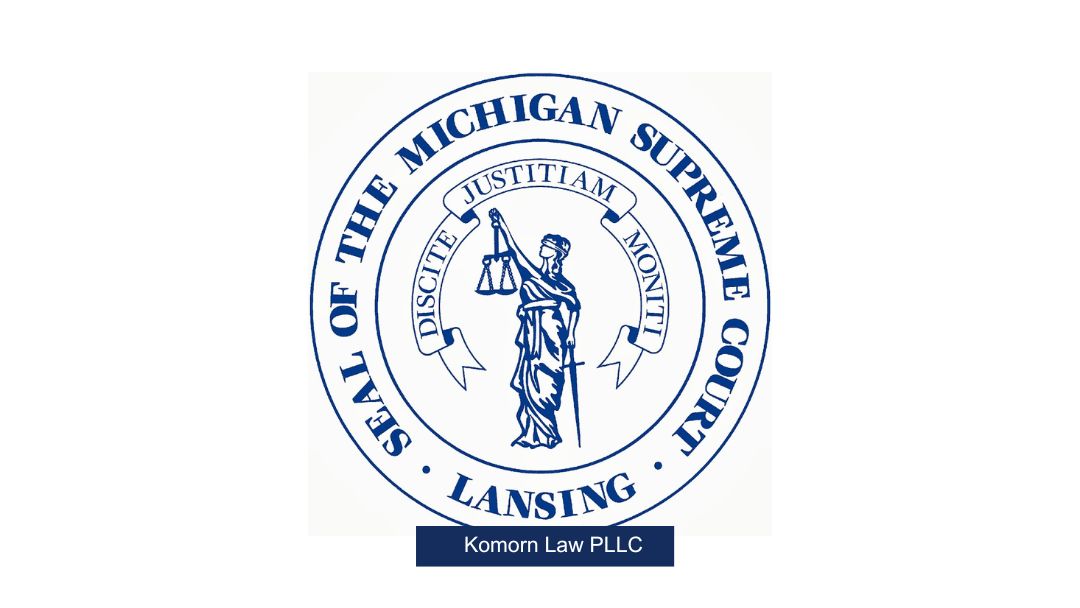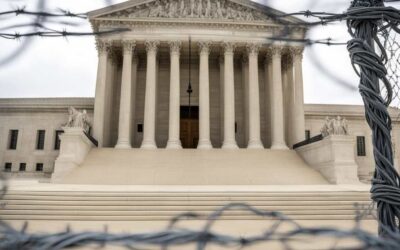In a landmark decision, the Michigan Supreme Court has ruled that counties cannot retain surplus proceeds from tax-foreclosed property sales, a move poised to return millions to former homeowners. This ruling, stemming from the case Rafaeli, LLC v. Oakland County, found that keeping surplus auction proceeds violated the Michigan Constitution’s Takings Clause, which prohibits the government from seizing private property without just compensation.
MCL – Article X § 2 Seizing private property without just compensation
Typical Government Hustle
Historically, Michigan’s tax foreclosure law, established in 1999, allowed counties to auction off properties with unpaid taxes and retain any proceeds beyond the owed taxes and associated fees.
This practice led to significant financial windfalls for counties, often at the expense of the original property owners, who lost their homes and any equity built up in them.
The Supreme Court’s decision overturns this precedent, emphasizing that former homeowners are entitled to any surplus funds from these sales.
The Michigan Supreme Court ruled that practice as unconstitutional and said the homeowner was entitled to that surplus.
At the time of the ruling, only claims from 2020 and later qualified for reimbursement of funds, but a new ruling Monday could impact sales as far back as 2014.
The case that catalyzed this ruling involved Uri Rafaeli, whose property in Oakland County was sold for $24,500 after he failed to pay a $285 property tax debt.
The county kept the entire sale amount, far exceeding the owed tax. The court ruled this action as an unconstitutional taking, highlighting the inequity of the practice.
This decision has significant financial implications for Michigan counties.
Many counties relied on surplus proceeds from tax foreclosure auctions to supplement their budgets and support various county operations.
Wayne County, for instance, often used these funds to cover budget deficits. Now, counties may face financial strain, particularly if the ruling is applied retroactively, necessitating repayments for past surpluses retained from property sales prior to the 2020 decision.
In response to the ruling, Oakland County and others will need to amend their practices. Oakland County has already settled a related lawsuit, establishing a $38 million fund to compensate affected homeowners. This settlement underscores the potential scale of financial restitution that counties might need to provide.
Like every other poor decision the government makes it will be funded by tax payers.
The ruling aligns Michigan with other states that ensure surplus proceeds from tax sales are returned to former property owners, reinforcing property rights and equitable treatment. Moving forward, Michigan counties will need to adjust their tax foreclosure processes to comply with this ruling, likely influencing legislative changes to solidify the new legal framework.
For former homeowners, this ruling represents a significant victory, affirming their rights to any equity remaining in their properties after tax debts are settled. It also serves as a check on governmental overreach, ensuring that property seizure for unpaid taxes does not result in unjust enrichment at the expense of taxpayers.
This decision has broader implications beyond Michigan, resonating with similar cases across the United States. Earlier this year, the U.S. Supreme Court sided with a Minnesota homeowner in a comparable situation, emphasizing a national trend towards protecting homeowners from losing their property equity in tax foreclosure processes.
Conclusion
The Michigan Supreme Court’s ruling mandates a fairer approach to tax foreclosures, ensuring surplus proceeds return to the rightful owners and setting a precedent for property rights protections. This decision will reshape county financial strategies and bolster homeowner protections, marking a pivotal shift in Michigan’s handling of tax-delinquent properties
Legal Counsel and Your Rights
When facing legal challenges, particularly in criminal cases, it is advisable to seek legal counsel immediately.
An experienced attorney can provide guidance on how to navigate interactions with law enforcement while safeguarding your constitutional rights.
Since 1993 our expert legal defense in navigating criminal law matters and protecting your constitutional rights are what we eat for breakfast everyday.
Contact Komorn Law PLLC if you’re ready to fight and win.
Research us and then call us.
More Rights You Should Know

Michigan Supreme Court Opinion regarding MMMA caregivers and local ordinances
DeRUITER v TOWNSHIP OF BYRON Chief Justice: Bridget M. McCormackChief Justice Pro Tem: David F. VivianoJustices: Stephen J. Markman, Brian K. Zahra, Richard H. Bernstein, Elizabeth T. Clement, Megan K. CavanaghReporter of Decisions: Kathryn L. Loomis Docket No....

The Michigan Supreme Court, Local Control and Medical Marijuana
Do cities and townships have the ability to restrict where caregivers grow medical marijuana? Over the course of the legalization of Medical and Recreational marijuana many have debated about whether control over dispensaries should be at the local or state level....
Other Articles
When Can Police Take Your Dash Cam?
You work hard. Now get ready to work harder to prepare to give more.In Michigan, police can take your dashcam footage in specific situations, primarily when they believe it could serve as evidence in a criminal investigation. Michigan law permits officers to seize...
When Can Police Confiscate Your Drone in Michigan?
Someone asked us... Can the police take my drone?As we have seen ... They can charge, arrest you and take your stuff for whatever they want. You'll have to fight it out in court to get it back.In Michigan, the police can confiscate your drone under certain...
People who are going to need a Lawyer – November 12, 2024
People who are going to need a LawyerMan so drunk field sobriety tests were ‘too dangerous’ sentenced to life in prison for repeated DWI convictions‘Several terabytes’: Diddy prosecutors shed light on ‘voluminous’ discovery, including iCloud accounts and dozens of...
Cambridge Analytica data breach comes before court
Oral arguments in Facebook v. Amalgamated Bank will beginThe justices are set to review securities law as they hear arguments in a significant case linked to the 2015 data breach involving Cambridge Analytica and Facebook. The tech giant’s effort to fend off federal...
Search and Seizure – Consent or Plain view
The Fourth Amendment was established to protect individuals from unreasonable searches and seizures, yet there are exceptions.In Michigan, understanding the concepts of search and seizure, particularly regarding consent and plain view, is crucial for both law...
Using a computer to commit a crime – The latest add on charges
FRAUDULENT ACCESS TO COMPUTERS, COMPUTER SYSTEMS, AND COMPUTER NETWORKS (EXCERPT)Act 53 of 1979752.796 Use of computer program, computer, computer system, or computer network to commit crime. Sec. 6. (1) A person shall not use a computer program, computer,...
A drunk driving investigation, a car wreck and a blood draw
A Case Summary: People v. Blake Anthony-William BartonOn October 11, 2024, the Michigan Court of Appeals issued a decision in the case People of the State of Michigan v. Blake Anthony-William Barton. The case involved a drunk driving investigation following a car...
Police say they can tell if you are too high to drive
Police say they can tell if you are too high to drive. Critics call it ‘utter nonsense’Haley Butler-Moore sped up to pass a semi on the highway when she suddenly saw the police lights. She’d left Albuquerque hours earlier, heading to a Halloween party in Denver. Tired...

















